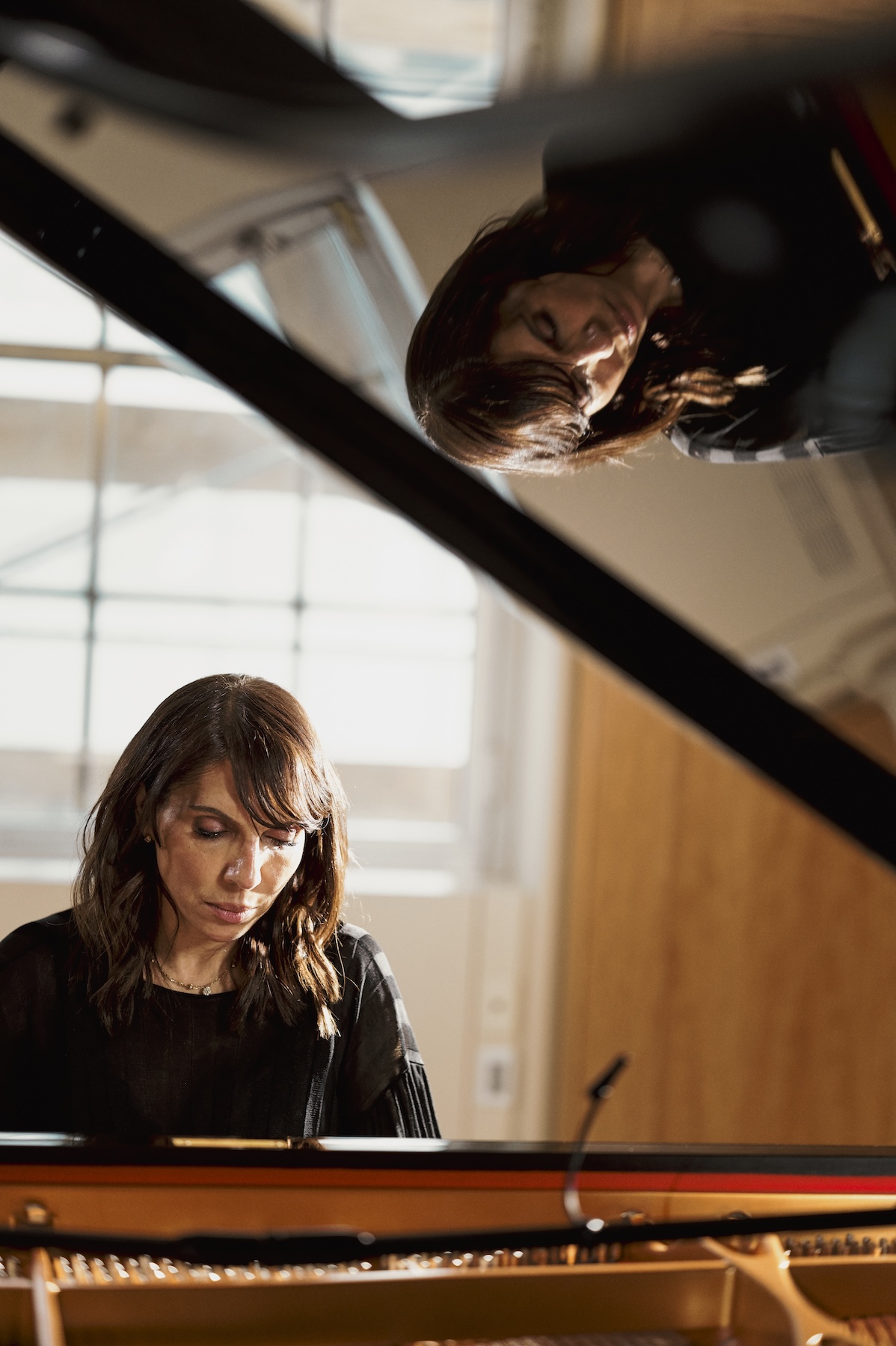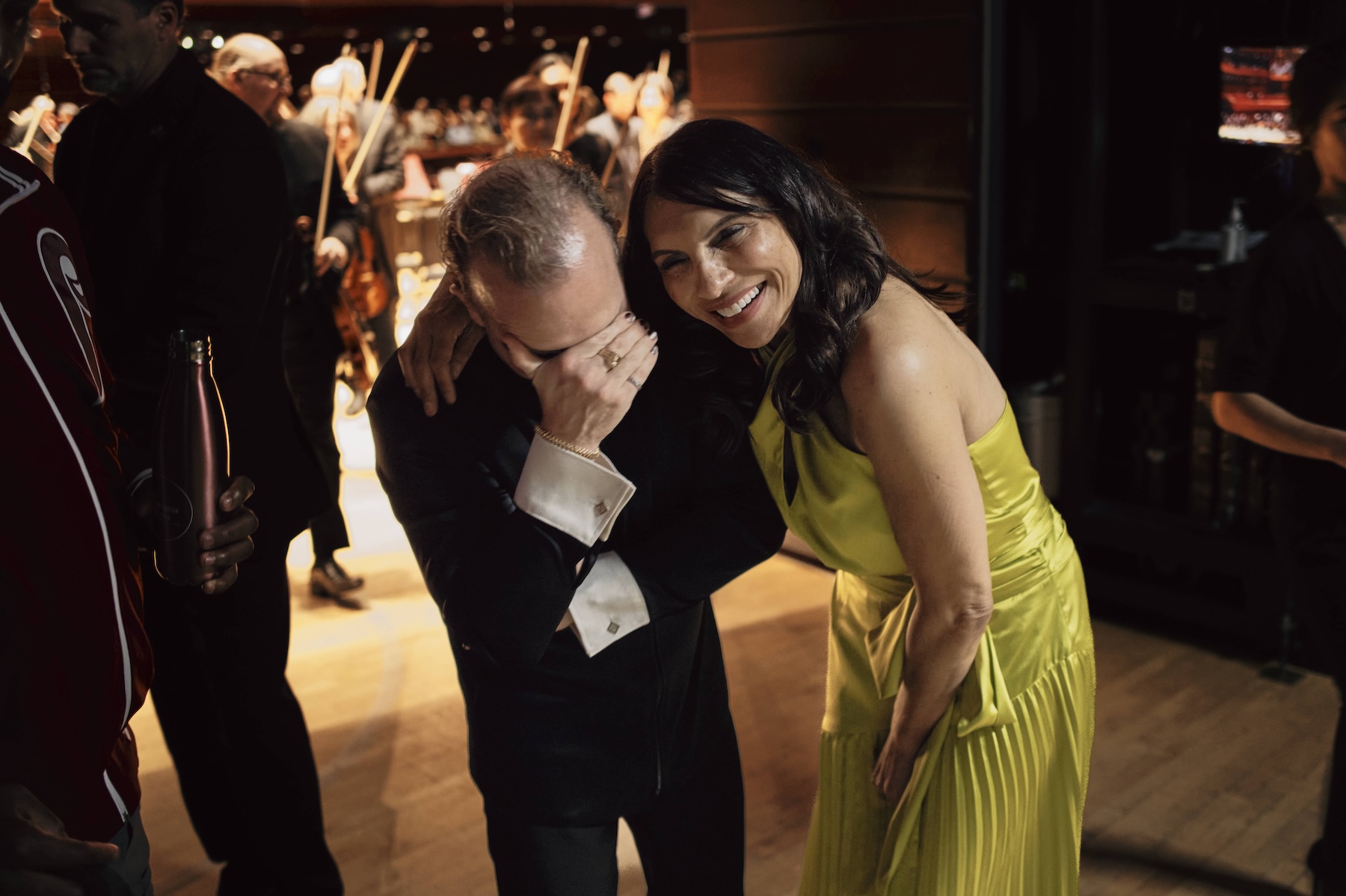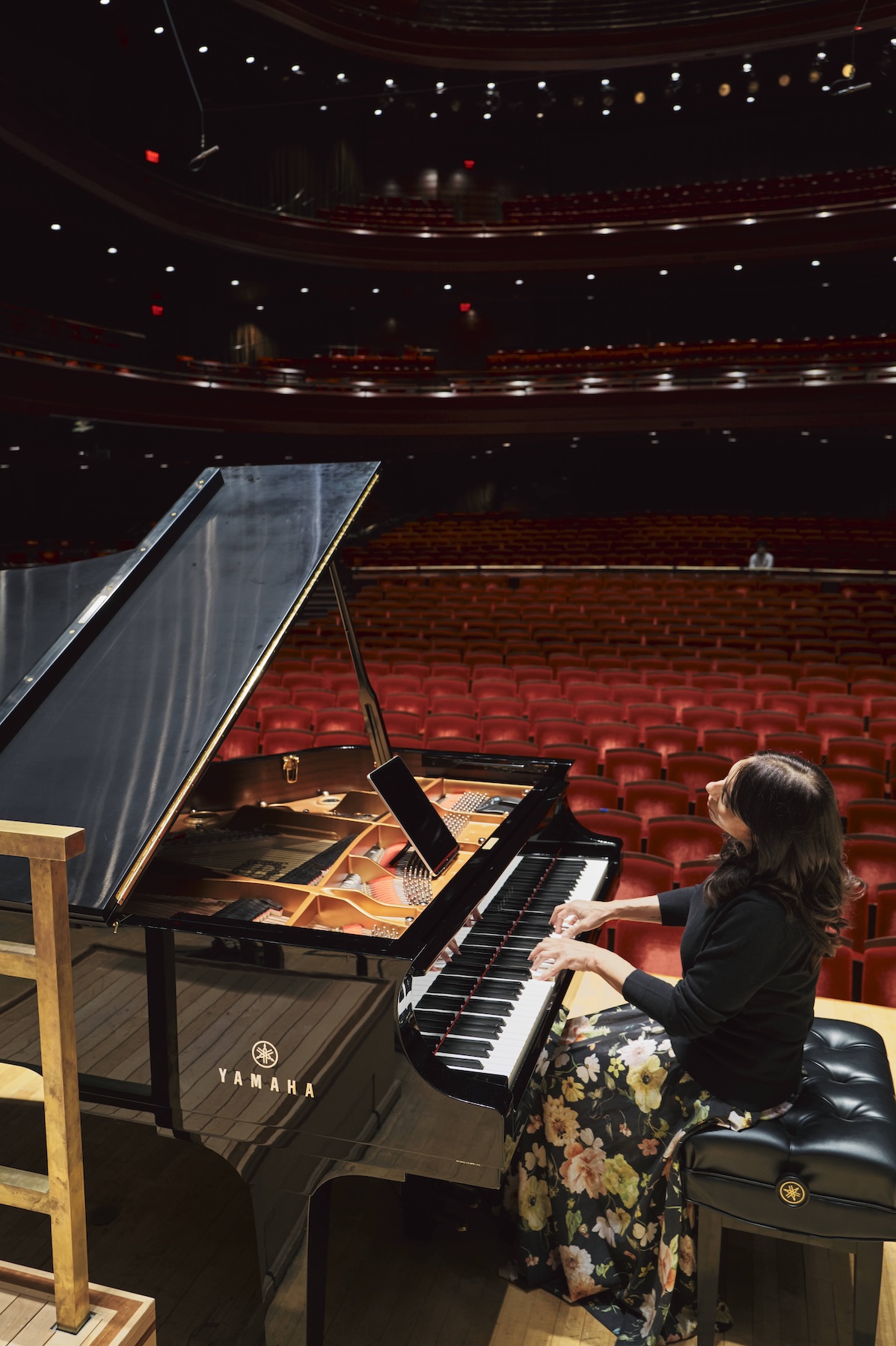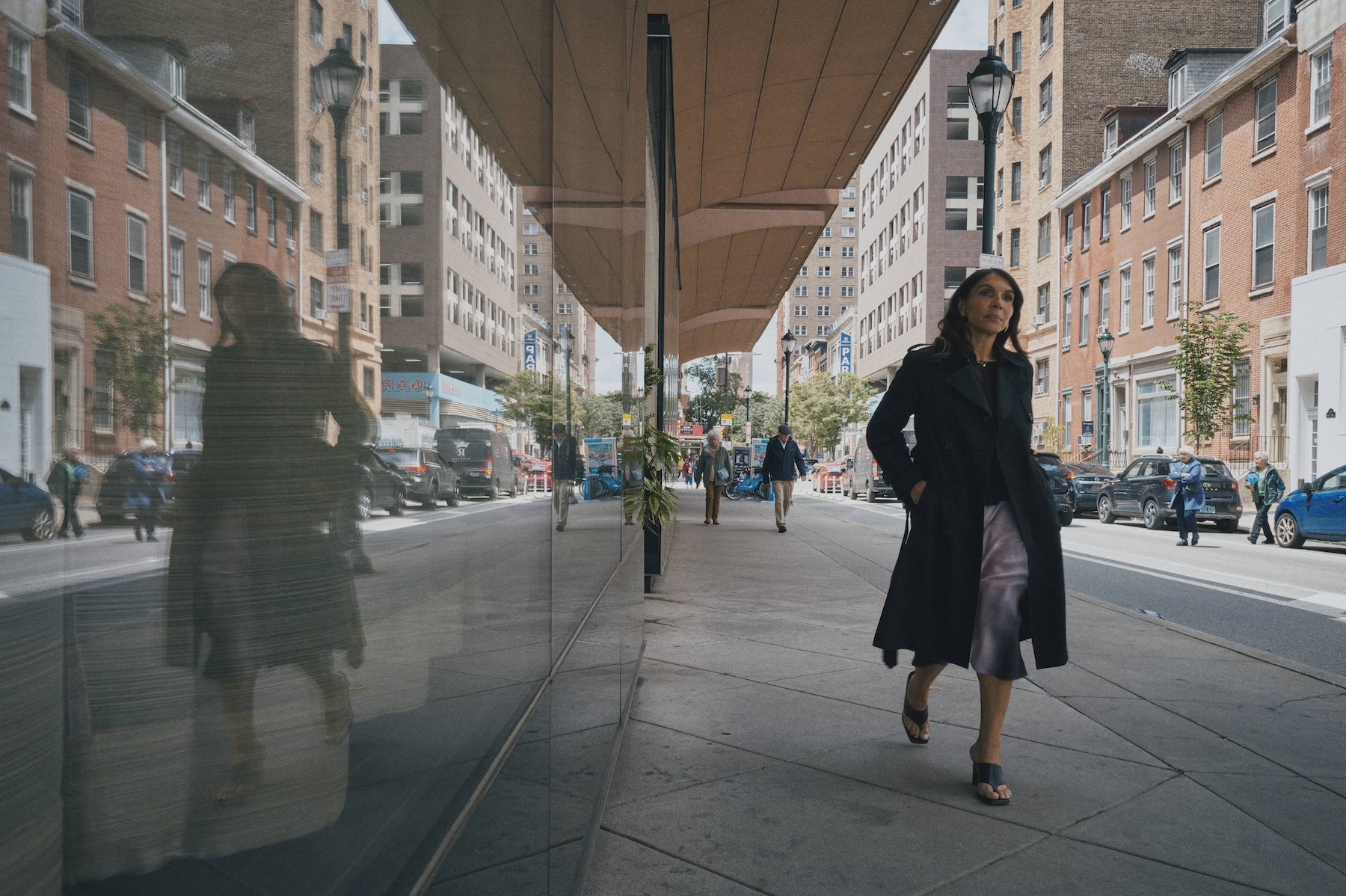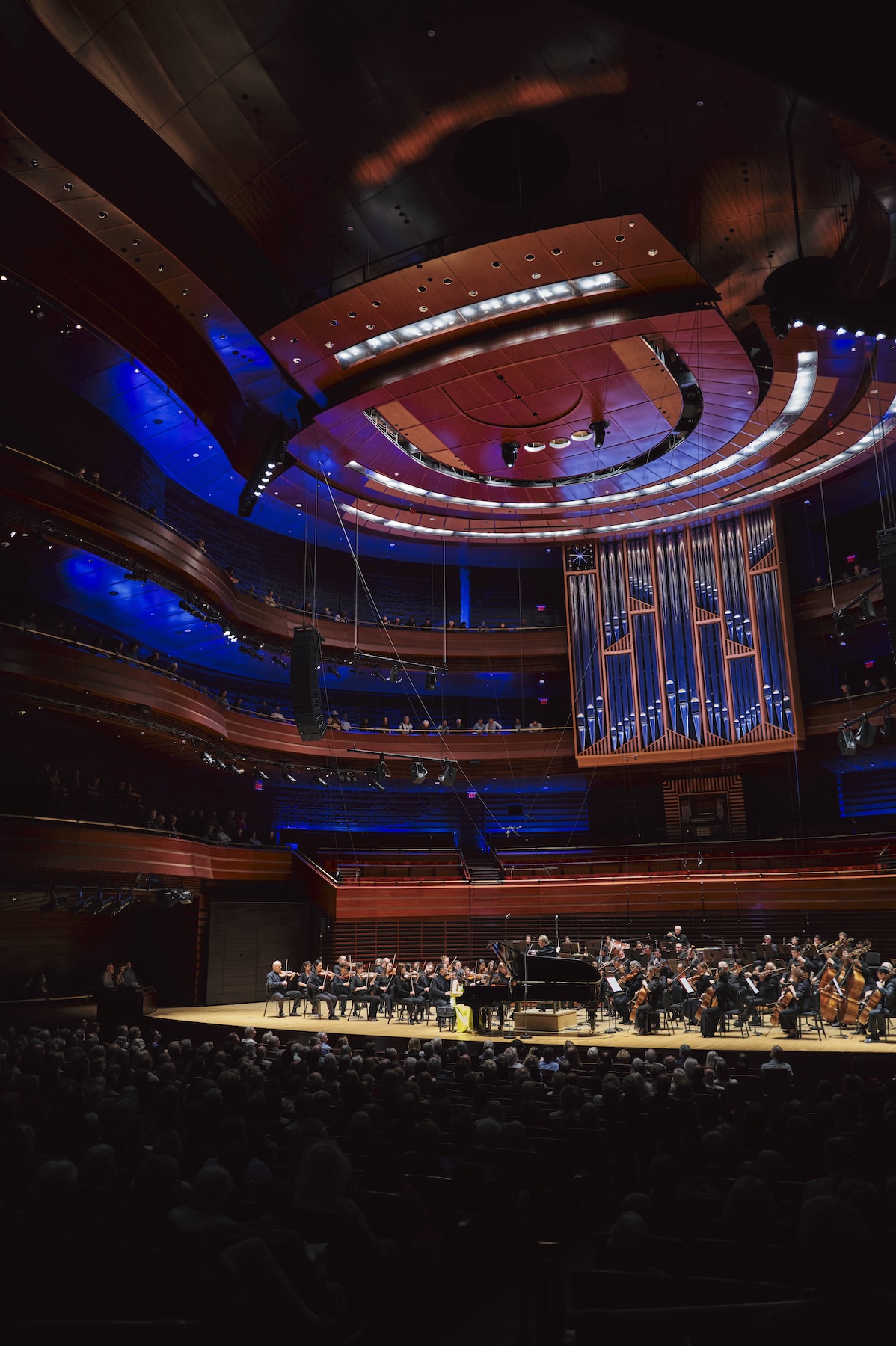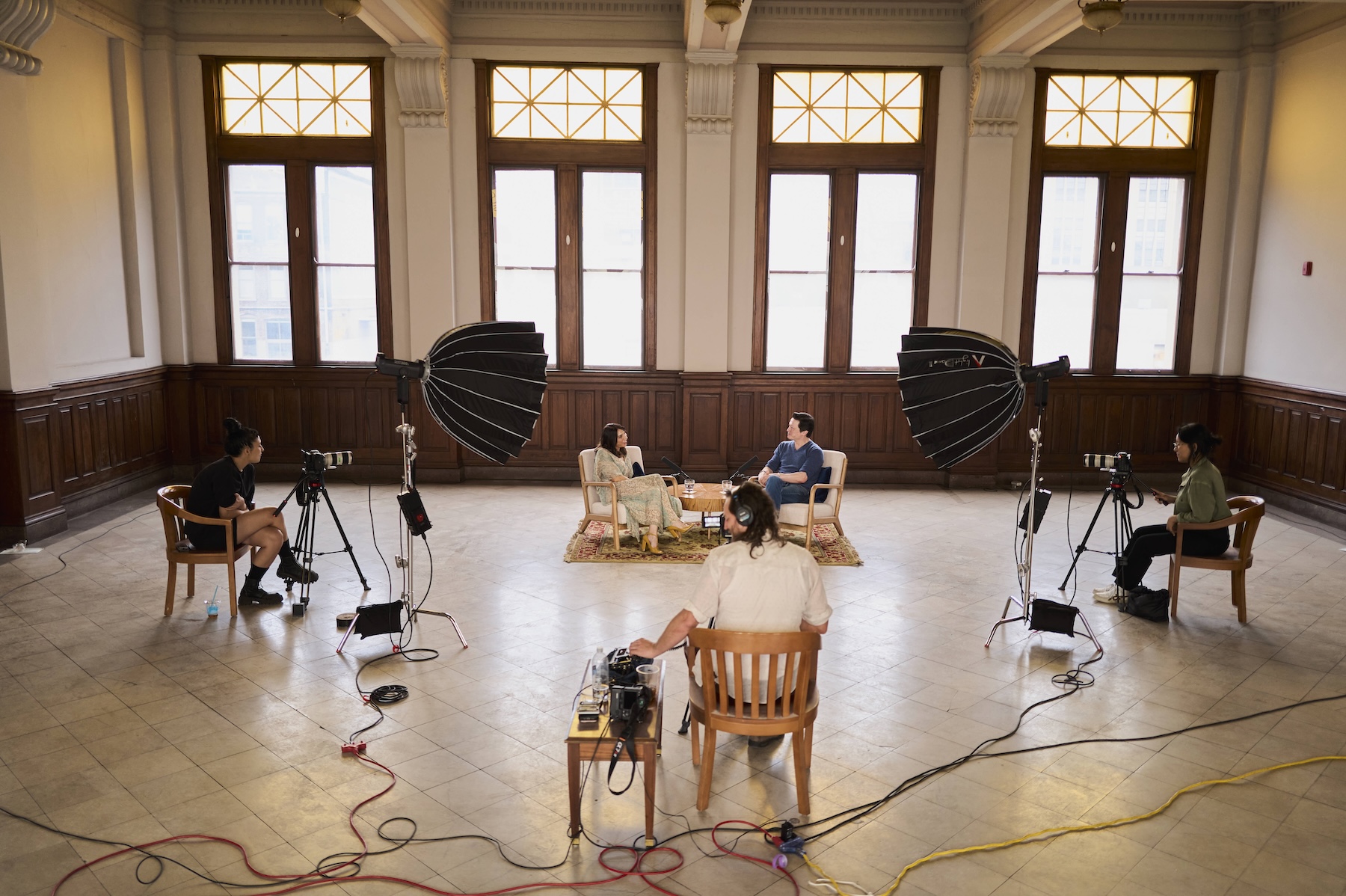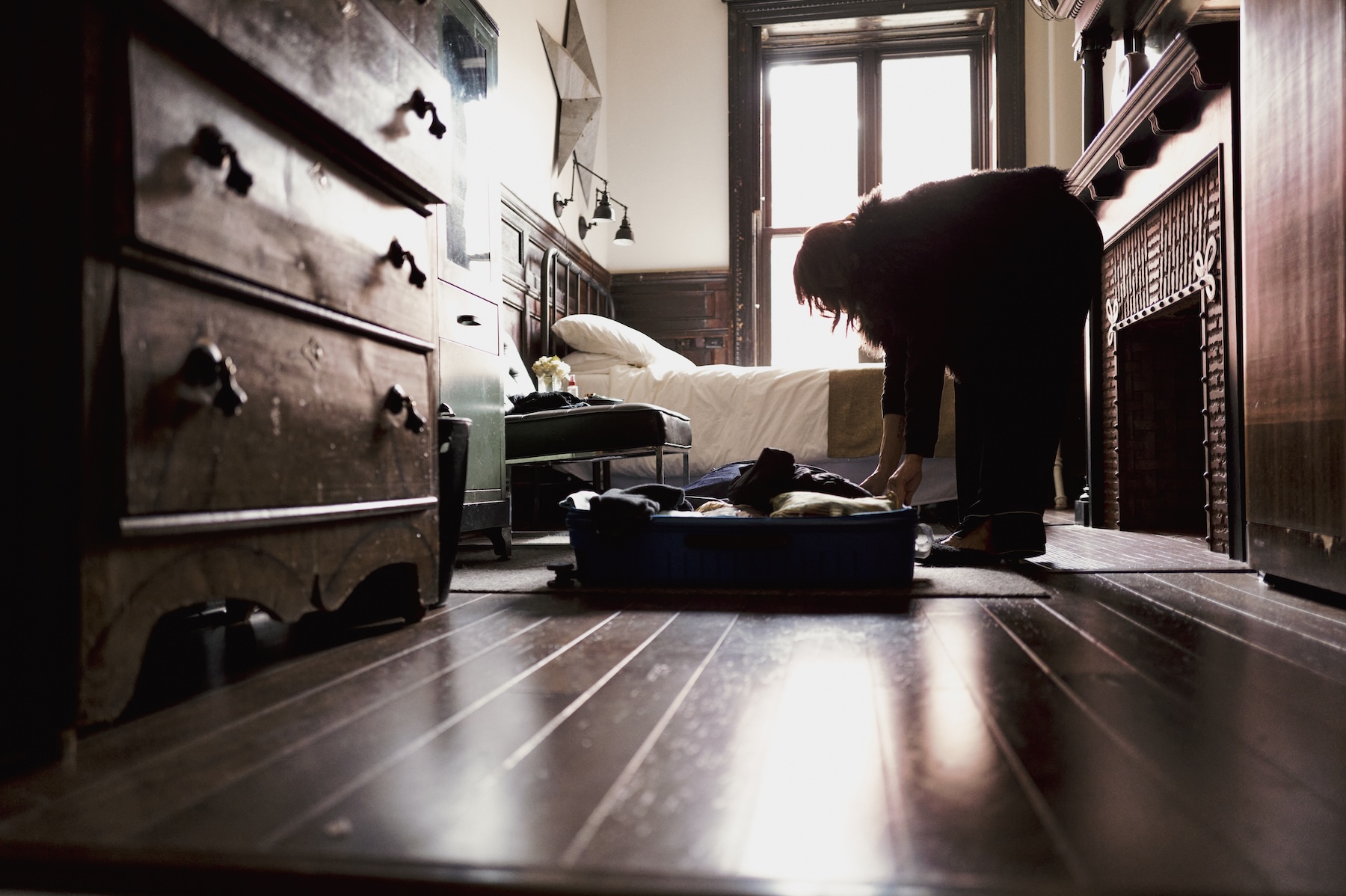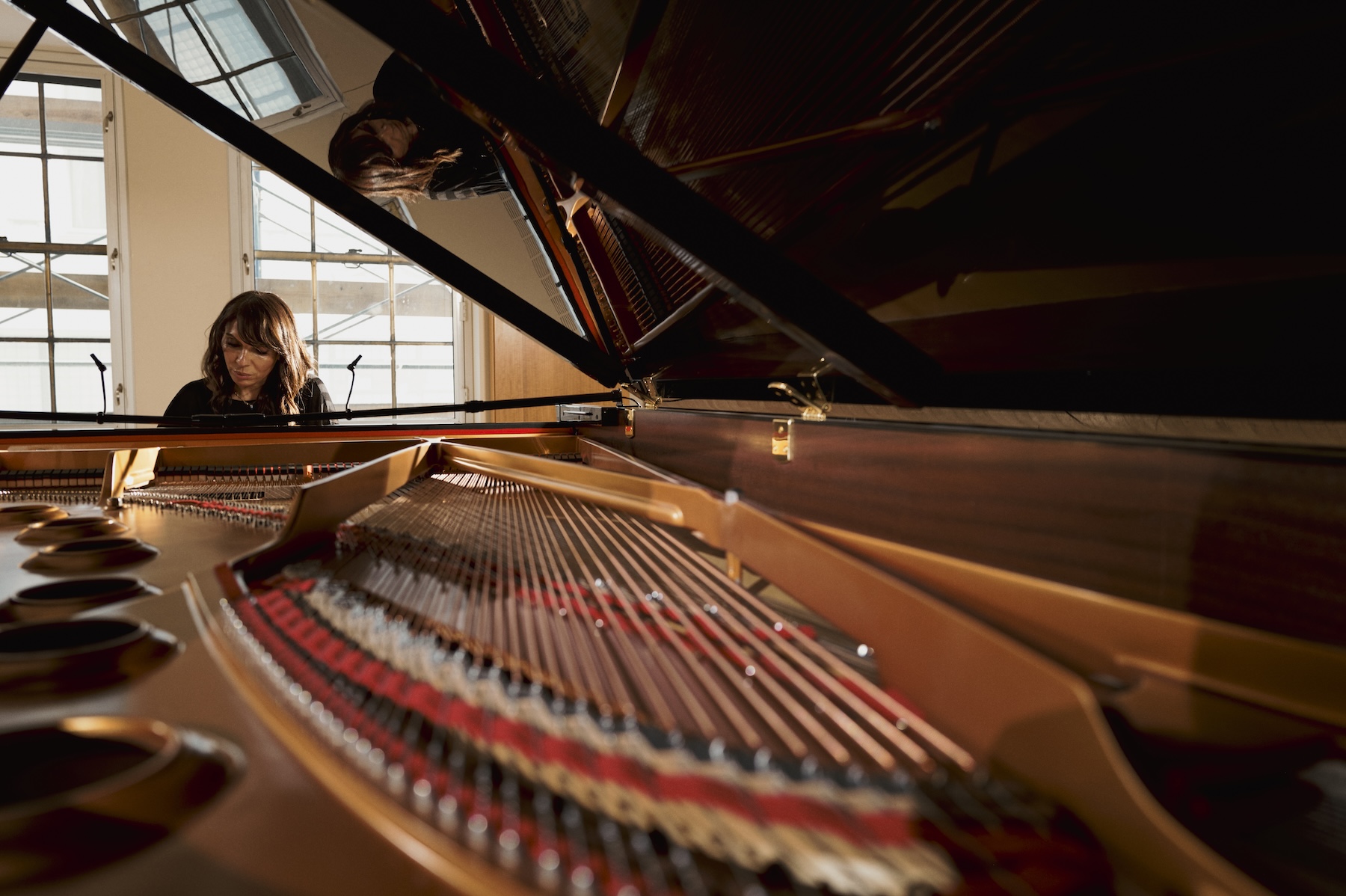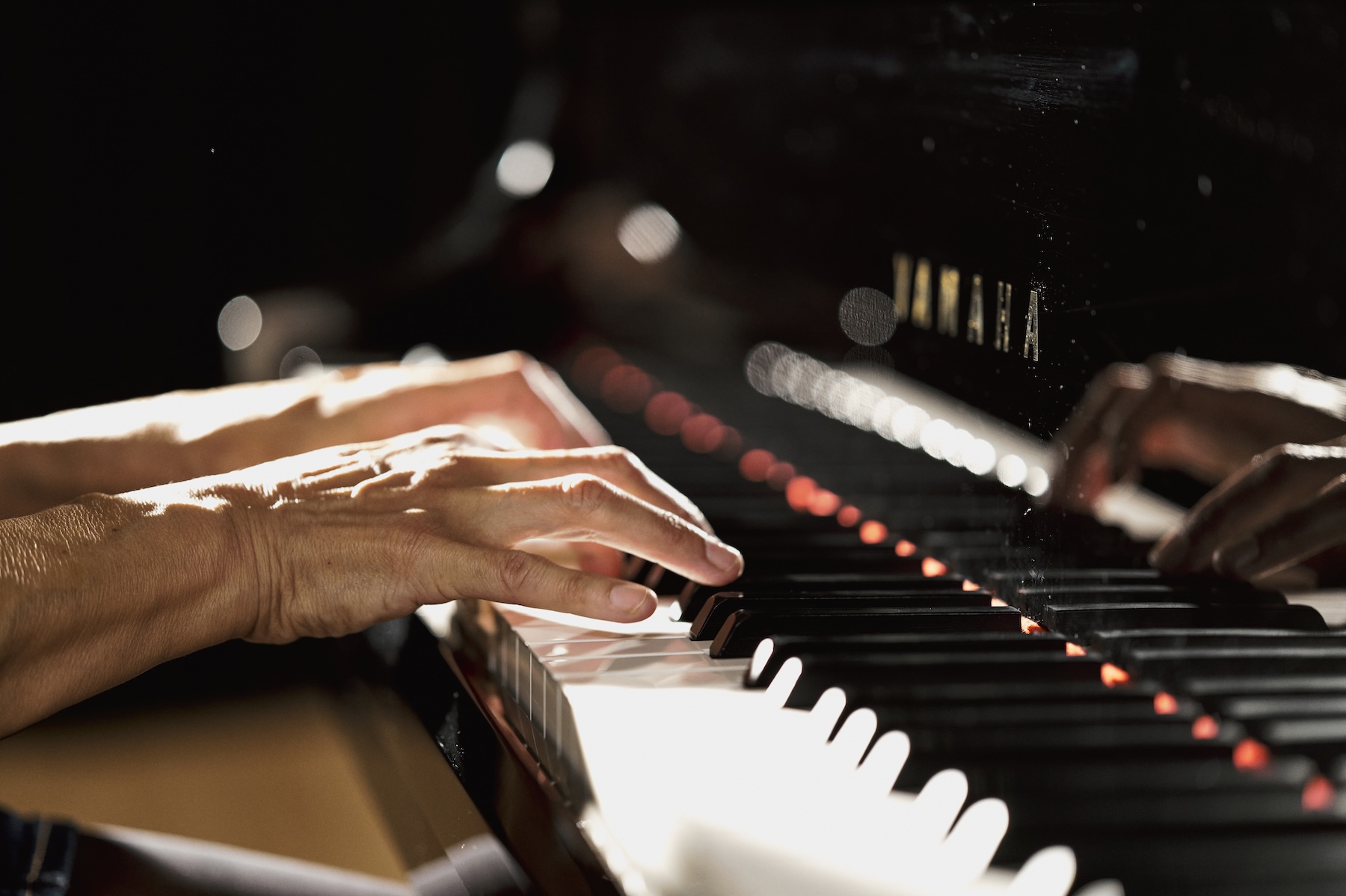Lara Downes
Charting New Dimensions: Lara Downes
Pianist Lara Downes on charting new dimensions
The acclaimed artist shares how a search for self-identity led to amplifying the voices of others
Written by Lisa Battles
Pianist Lara Downes holds a place, places even, that few classical musicians occupy today. Her approach to life and work is akin to quantum mechanics, with subtle interconnections, strength in duality, embraceable uncertainties and powerful outcomes.
While she doesn’t describe it this way, her music and career yield evidence that her lens of discovery, both of herself and others, is inherent and difficult to measure.
Multifaceted musical presence
Downes’ presence is like a play of light across media, venues, organizations, genres and audiences, with NBC News calling her “a musical ray of hope” and other critics praising her for pushing music forward while breaking down conventional perceptions about classical music, its place in history and those who create it.
She takes on historic scores and newer compositions, blending genres and delivery to reach people far beyond concert halls.
Named NPR’s 2022 Classical Woman of the Year, she herself created and hosts the hugely popular NPR video series “Amplify With Lara Downes.” She’s topped Billboard charts as a recording artist. Meanwhile, she continues a steady stream of live performances with orchestras from Philadelphia to Los Angeles, and on stages from New York’s Lincoln Center to Berkeley’s Cal Performances. Currently, she’s one year into a three-year appointment as the Los Angeles Chamber Orchestra’s first Creative Partner.
Downes has even been a “New York Times” crossword clue. That fact is near the top of her bio, an accomplishment that speaks to her passion for connecting classical music to as many people as possible, far beyond the concert hall.
Uncovering her own story
The internal drive to write that personal story has always been at the heart of what she’s accomplished and still aims to achieve. With a markedly nontraditional background, there’s been much to uncover, she says.
As one of three daughters to a scientist father of Jamaican descent who grew up in Harlem and a mother who was a lawyer and “Jewish girl from Akron, Ohio,” Downes and her siblings all began piano lessons as soon as they could play in San Francisco. Their parents chose to raise and homeschool them there, perhaps “trying something utopian,” she says. Her father died when she was a preteen, and eventually her mother chose to move the family to Europe, where Downes stayed for seven years.
There, Downes says, “Growing up was a weird, homeschooled music bubble and for so many reasons, I just didn’t think about it. And then in Europe, a lot of things made sense and connected themselves again, via the pathway of music. There was that tradition that is real there – present and important. Just meeting so many other young people for whom this was the center of the universe was very grounding and comforting in so many ways. But on the other hand, we were also always ‘the American girls.’ So when I came back here [at age 21], it was just time to break away from my family and figure some things out. And I realized that I had a lot of things to figure out, and I had no idea what it meant to function in this country, either personally or artistically.”
Embracing unexpected advantages
When Downes arrived in the U.S., she began exploring American musical traditions to uncover her heritage and find her place within them. The journey has forged a career that blends her diverse experiences while bringing what she’s discovered to new audiences. In considering how nonlinear her approach has been, she reflected on how her homeschooling had felt like “unschooling.”
“It was not very structured at all. I had learned from the age of five or six just to find a book if you wanted to know something. Nobody was feeding information to me. So my journey into American music was very much like, ‘I need to go out and figure out where this stuff is,’” Downes says.
At times, she grappled with not having a conservatory network like most of her peers, while appreciating that her experience and curiosity led to unique opportunities that may not have presented themselves otherwise.
“There’s something really strange about not knowing, not having the experience that most people have of curriculum and structure and linear pathways in learning. If you don’t have that, you also don’t know what other people don’t know. So it’s like everything is new. It was like being an alien who had just gotten here,” Downes says.
Changing perceptions about classical music
Her process led to a major shift when she finally discovered the history of women and people of color in the classical music tradition. While her work in this space has brought recognition for resurfacing lesser-known musicians and forgotten compositions, she is emphatic about framing that experience accurately.
First and foremost, it was a search for identity and discovering how she fit into the picture of classical music throughout history. She says it was also a pure search for history and sound versus a tidy fit into a social justice category, which was not her primary intent.
“And then it did become an understanding that if this music exists and it speaks to me in this way, then think about all the other people that it speaks to because it can crash through those barriers of [thinking that] classical music is boring, old, dead, white and for rich people. Look at all these people who’ve been part of it,” Downes says. “But it had nothing to do with solving racism in America. I’m feeling so urgently the need to be really clear about that. It’s a privilege that I’ve found this music, that I’m able to share it, and that more people know it. It’s not that I’m doing this music any favors … I just think that music is vitally important [and] it’s not right that everyone doesn’t get to experience it if they want to.”
Reframing values through voices
Her latest initiative, The Declaration Project, commemorates America’s upcoming 250th anniversary through spoken, written and musical storytelling about the foundational concepts of life, liberty and the pursuit of happiness. The project encourages individuals from all walks of life to reinterpret these ideals from their perspectives, moving beyond historical narratives to envision a collective future.
Through regional residencies and workshops and the project’s website, Downes is gathering and compiling submissions into a national digital archive with stories featured in a video installation that will accompany her multimedia concert, DECLARATION, premiering in New York in July 2026, and featuring new works for piano and orchestra by Grammy Award-winning composers Valerie Coleman, Arturo O’Farrill and Christopher Tin. Each composition will be a contemporary musical exploration of one of the three principles.
The project embodies the kind of work Downes sees as most valuable because it can be catalytic for reflection, dialogue and transformation.
“I really feel so clearly and deeply the role that music can play in opening up dialogue in all the places where I go and among all the people that I meet. And the more evident it is how completely impossible that is in most arenas, I try to make the most of that superpower,” Downes says. “There is no piece of music that doesn’t touch on one or two or all three of those concepts. So the project is meant to mark this moment in time, but I think more it’s meant as a pathway, again, for me just to get out there and find ways to create conversation and communication that is otherwise really hard to come by. I think probably the worst problem we have is the inability to just listen to other people and other perspectives. So I love it. I mean, it’s turning into something so massive that it’s taking on new dimensions every day.”
The Three440 Artist Story Series takes you beyond the spotlight and into the real lives of Yamaha Performing Artists. Each story is a window into the creative process, pivotal moments, setbacks and victories that define an artist’s path.
STAY IN TOUCH! SIGN UP FOR THREE440 STORIES
Three440™ is a trademark of Yamaha Corporation of America.









